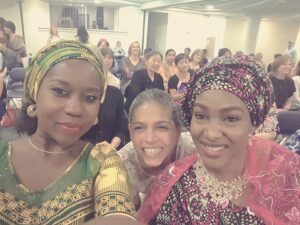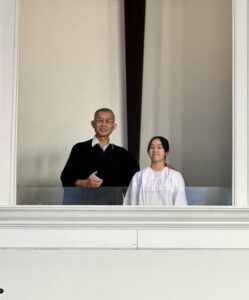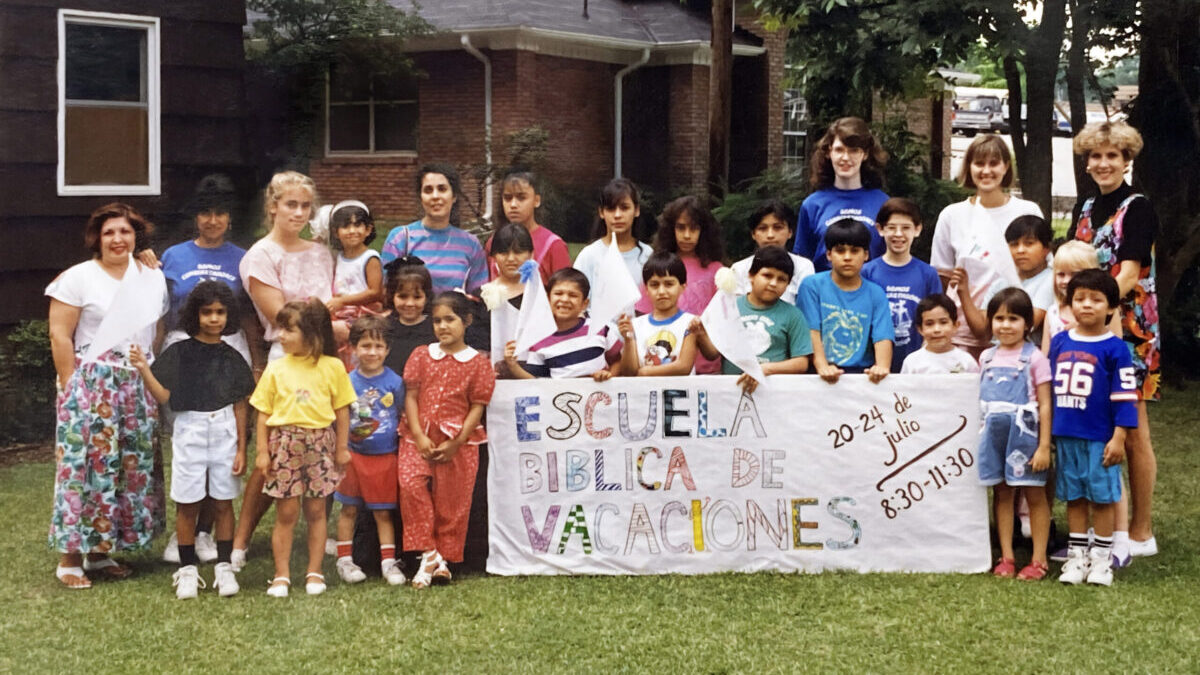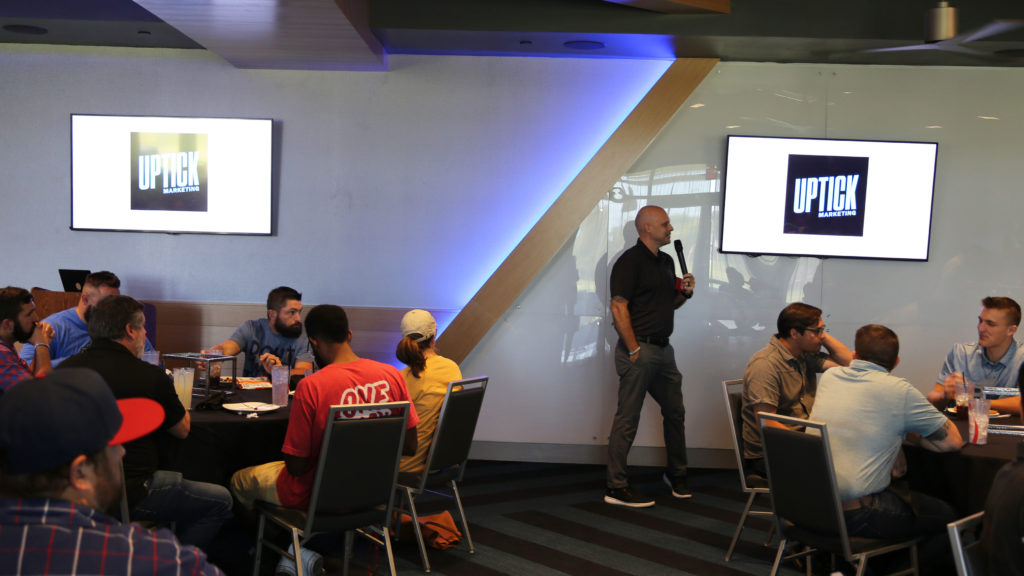When Richard Alford was called in 1991 to serve in language missions with the Alabama Baptist State Board of Missions, he had a skill they needed — fluency in the state’s most widely used language behind English: American Sign Language.
At that time, the Deaf were by far the largest language group after English in Alabama. But Alford had barely unpacked in his new office before he started noticing a shift.
“The 1990 census for Alabama was showing 30,000 Hispanics, and as best I could tell, that was probably reasonably accurate,” he said. “But for the first few years I was here, it seemed like two to three times a week I would get calls from a church or a director of missions saying, ‘We’ve got Spanish speakers in our area. What can we do to reach out to them?’”

Alford didn’t speak Spanish or have any experience with Hispanic culture, but he knew his office’s ministry needed to adjust. At that time, the Spanish-speaking population of north Alabama was growing rapidly because of the pull of the poultry industry, and other areas were starting to gain a Hispanic population too.
Grassroots effort
“We started scrambling,” he said. “And I knew I needed to move beyond my being the focal point for everything that goes on when it comes to language ministries.”
So he and others began developing the Hispanic missionary concept right where it was — not in Montgomery, but all over the state. They began strategizing how associations could work together with help from the SBOM to hire Hispanic church planters, and they organized into four regional Hispanic coalitions.
It was a largely grassroots effort with assistance from the SBOM, and it was happening at the church level just as it was happening at the associational level.
In 1992, Dawson Memorial Baptist Church in Birmingham planted a Spanish-speaking congregation led by former International Mission Board missionary Brian Harper, and Harper soon suggested they bring Bayron Mosquera, a pastor from Ecuador, to lead the church.
“Our Hispanic congregation at Dawson was started by a small group of people who had the foresight to see the implications of what was happening with our Hispanic population here, though in the early 1990s it was really small,” said Ben Hale, Dawson’s evangelism and missions pastor.
Growing need
To say the Spanish-speaking population has grown in 30-plus years would be an understatement.
Now the Hispanic population of the U.S. numbers more than 60 million — the second-largest Spanish-speaking country in the world behind Mexico. More than 200,000 of those make their home in Alabama.
Ministry to Hispanics is growing too, Harper said, though there’s still a lot of work to do to catch up with the population growth.
Harper — who has led the SBOM’s church planting efforts since 2020 — said in some areas of the state, the Hispanic population is over 50%.
“We’ve got some locations in the state that are loaded with Hispanics,” he said. “We saw 14 new works start last year in the state.”
One of those is at First Baptist Church Hoover. Within a one-mile radius of the church, there’s almost an even split between households that speak English and those that speak Spanish.
That reality encouraged The Church at Brook Hills in Birmingham to move its Spanish-speaking congregation from its campus to FBC’s facilities in fall of 2022 to help it move toward becoming a self-sustaining church plant, Iglesia La Conexión.
Brook Hills also moved its evening co-ed English as a Second Language classes to FBC, and it became a joint effort of volunteers from Brook Hills, FBC and Hunter Street Baptist Church in Hoover.
‘Powerful partnership’
“When churches are bringing the love of Christ in tangible ways to a community together, the gospel is made alive in a powerful partnership,” Harper said.
Other partnerships around the state are fueling the spread of new Hispanic ministries and churches too, Harper said, including Dawson, the place where his journey of Hispanic ministry in Alabama started more than 30 years ago.

In 2011, Dawson helped plant a Hispanic church led by Pastor Joshua del Risco at Fultondale FBC, and in 2022, they started a Hispanic church planting residency.
As part of the residency, Hispanic church planters serve and train alongside del Risco for 12 to 18 months before planting a church in another area.
The first two planters have been training and are preparing to plant churches this year — Humberto Medina in Huntsville, and Juan Felipe Aristizabal in Alabaster in partnership with Westwood Baptist Church.
Two additional church plants are in the early planning stages for 2024 in Athens and Albertville.
Something similar is happening in the Mobile area, where Ramon Vielza has planted I-10 Church and has helped train church planters to plant four more churches from Montgomery south.
The effort has been a partnership between the SBOM, local Baptist associations, the North American Mission Board and local churches, including FBC Tillman’s Corner, which houses I-10 Church.
“They’re seeing people come to the Lord, people being baptized,” Harper said. “God has really opened the doors.”
And all over the state, ESL ministries are providing an opportunity for churches to reach out to internationals in their area.
Kristy Kennedy, who leads community ministries at the SBOM, says many of the internationals who live in Alabama have never had their own Bible, and many have never heard of Jesus specifically.
“For me personally and my experience, ESL ministries are one of the best ways to reach internationals with the gospel, not only in the U.S. and Alabama but around the world,” she said. “There’s a huge opportunity here.”
Alabama Baptist churches currently run 25 ESL ministries, including the one at FBC Hoover.
“Through ESL, you’re able to make that connection with internationals and help meet their needs,” she said. “It’s an amazing ministry to get to be a part of. You get to see lives change because of the gospel.”
‘On the radar’
The ministry is part of reaching the state’s Hispanic population, but it reaches past that into dozens of other nationalities, all of which are on the radar of Alabama Baptist work.
Over the years, state Baptists have supported missionaries at the state level focusing on Deaf, Hispanic and Asian peoples.
They have also helped plant churches with Arabic, Cambodian, Chinese, Choctaw, Creek, Deaf, Filipino, Japanese, Korean, Laotian, Messianic Jew, Thai and Vietnamese language and culture focuses.
Alford, who retired in 2007, said Alabama Baptists’ ESL ministry “was vitally involved” with reaching many of those language groups.
“I’m proud of Alabama Baptists for being missions-minded people,” he said, noting that all glory goes to God for the way the ministry has grown over the years.
“It’s God’s expansion,” Alford said.






Share with others: